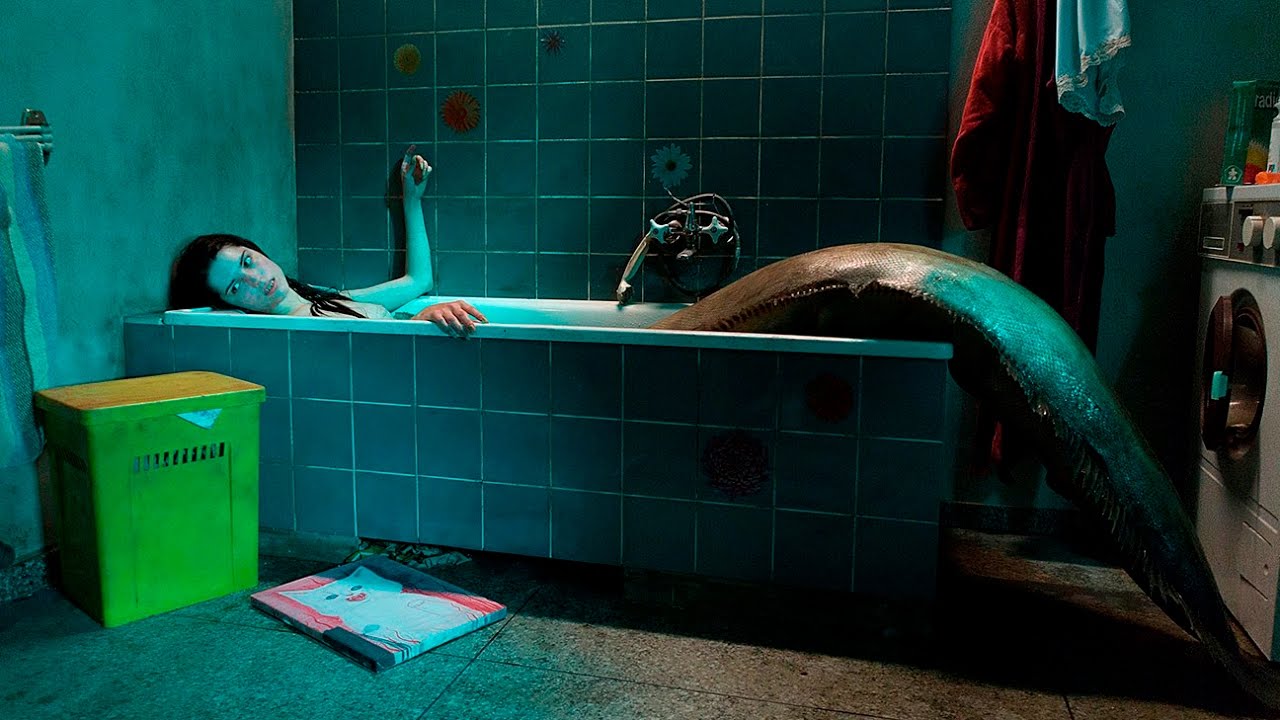Yesterday, we kicked off our October horror movie run-down with an initial five viewings for the month. It would still be surprising if I scramble my way up the deadly, haunted heights of Spooktober to the eerie summit of 31 before Halloween, but it won’t be for lack of trying. Here are 5 more for the funeral pyre.
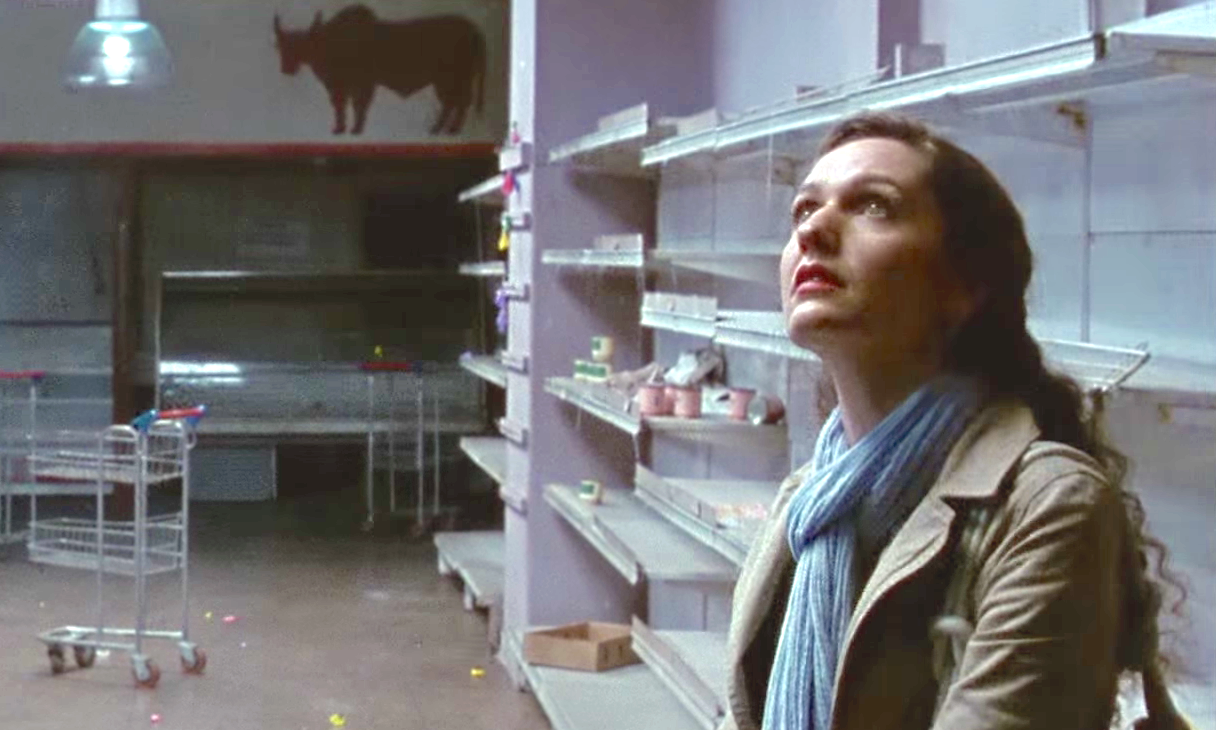
Probably the only recent creepfest focused on the acquisition of a haunted grocery store, Hard Labor is as overtly class-conscious as horror comes. This is to its great credit! Helena Albergaria stars as Helen, who is struggling to maintain a middle-class existence with her recently laid-off husband Otávio (Marat Descartes). The two have a young child, a live-in maid/nanny (Naloana Lima), and a well-furnished home, but finances are dwindling. Helen’s dream of owning and running her own shop becomes less a passion project than an economic necessity.
Of course, things do not go well at the store. Writer/directors Marco Dutra and Juliana Rojas ratchet up antics from missing products to barely audible noises behind the walls to an uncanny mechanical Santa to some sort of black ooze seeping up from the ground. There are intimations something horrible happened here, and Helen starts to lose her grip. The kicker, of course, is that the store can’t just be closed; not in this economy. The cracks are just plastered over, the viscous liquids mopped up. There’s a growing sense that we’re in a space more like Argento’s ballet academy than your average grocery.
But Hard Labor is just as interested in the fraught relationships between husband and wife, wife and nanny, and boss and employee as it is in the growing unease on the shop floor. It’s an unusual entry, one in which the culprit is less an ancient evil than contemporary capitalism. Call it the 2017 Spooktober contribution to Austerity Horror.
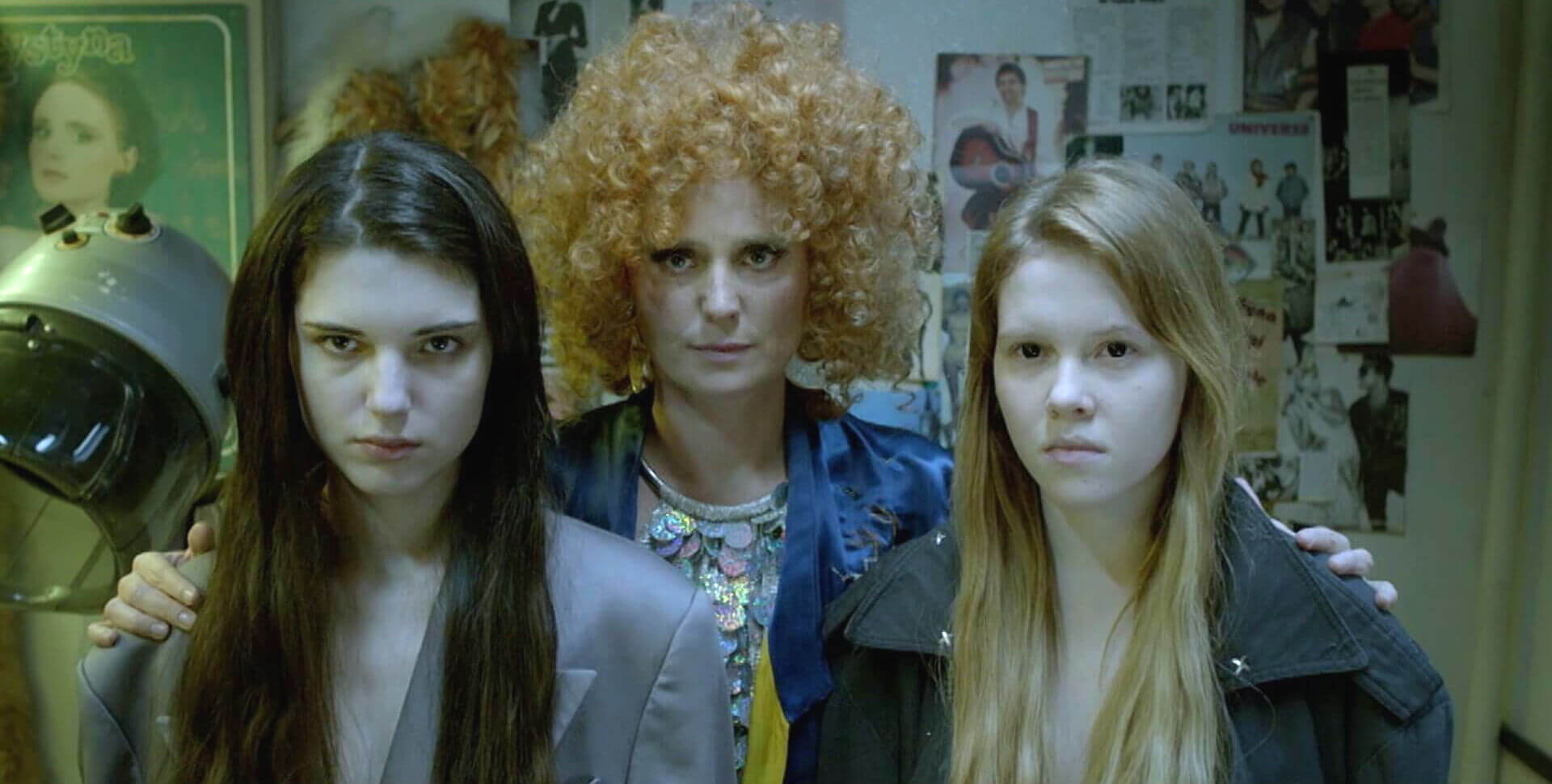
Some years ago in Poland, an enterprising person delivered this pitch: “Ok, here’s the thing. We have two beautiful young mermaids who are lured from the water by the intoxicating music of some young guy. But it turns out mermaids are vicious, Id-governed killers who thrive on blood. No one knows this yet, though, and so they are hired as exotic dancers at a club where men are extremely excited by the novelty of half-naked pubescent mermaids, which they seem to treat as a normal development in their dance-club-going routines. Ultimately, the mermaids struggle with their desires, carnal and emotional. Oh, and it’s a musical.”
And some other person heard this, nodded solemnly, and replied, “This sounds like the sort of thing people would love!”
And God bless that second person, because The Lure is utterly unlike anything else around. Every development is weirder than the previous one, the long fantasia musical segments are hallucinatory and beautiful (and the songs are actually pretty great!), the relationship between the leads develops along believably tragic lines, and it delivers on that promised mermaid gore. Director Agnieszka Smoczynska pulls off one of the weirder balancing acts of recent years, teasing out themes of adolescence, sisterhood, jealousy, sex, and the ideology of the body amid all the absurd mermaidenhood. Hands down, my favorite new watch of Spooktober, The Seconding.
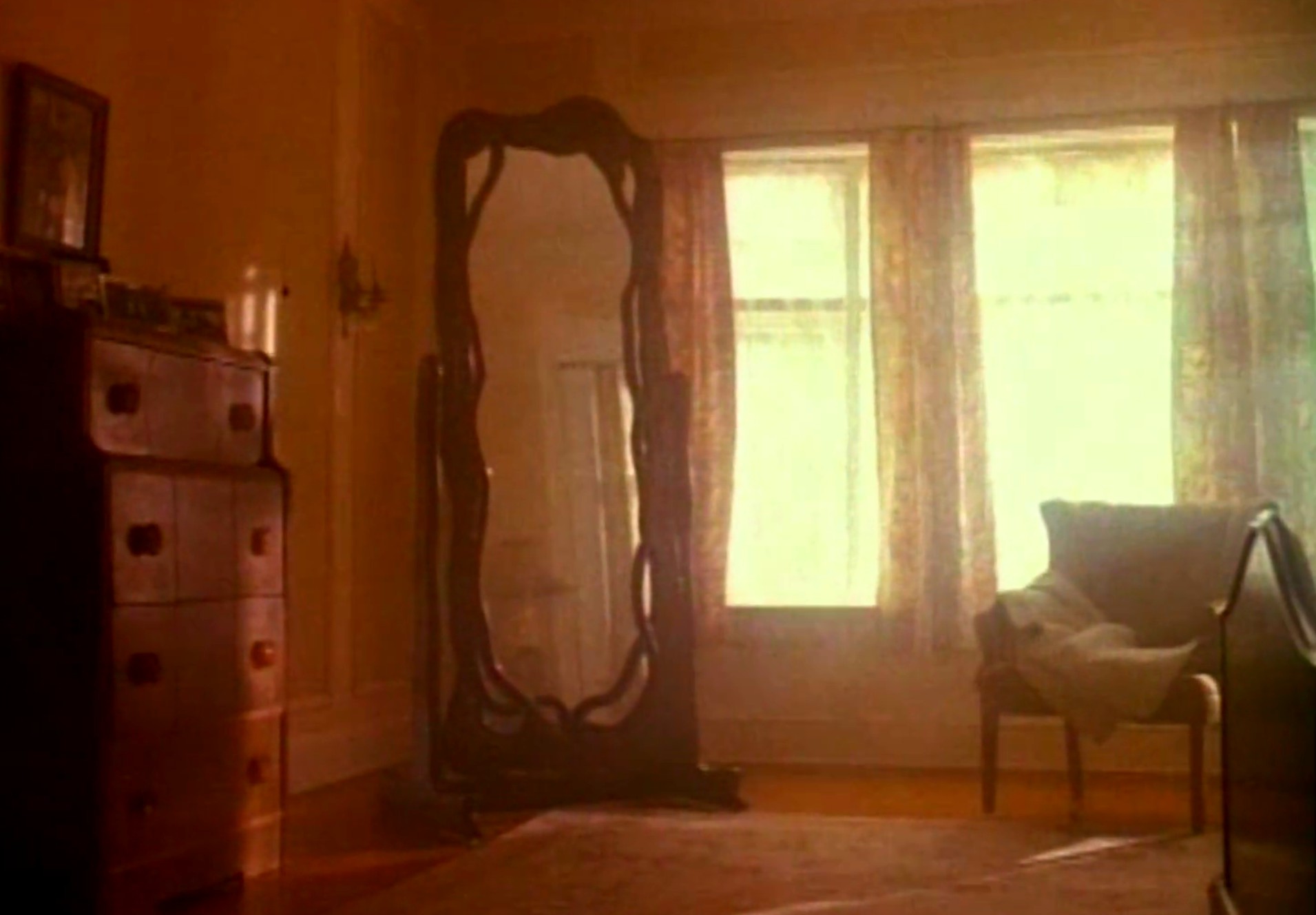
Sort of an Oculus meets Teen Witch affair, with funnier hats and fewer rap battles, Mirror Mirror tells the age-old story of a disaffected teen compelled to move to a new town, school, and house, and deal with the combined traumas by bonding with an ancient blood-spewing mirror that grants her darkest wishes. Like some sort of cool Carrie — or a Willow, if Willow had always been goth — our protagonist Emelin (Yvonne De Carlo) first resists the pull of black magic, but then begins to recognize its possibilities.
This movie was pretty dumb and pretty fun, a decent palate cleanser from some of Spooktober’s more challenging bits of weirdo cinema. Karen Black plays the mom, too, and she’s always a welcome addition.
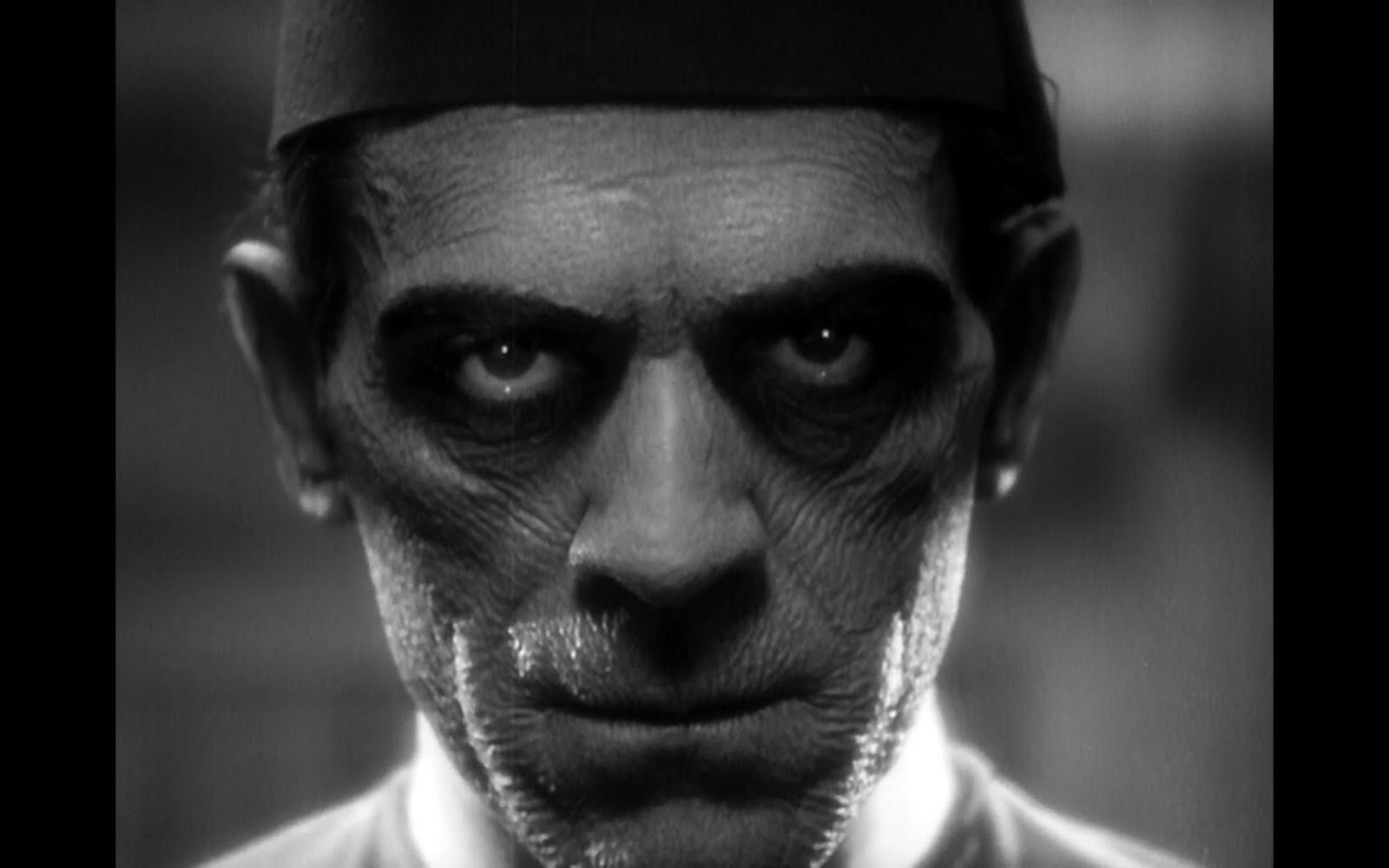
A year after Frankenstein (and sharing his 1932 roll call with The Old Dark House and The Mask of Fu Manchu, among others), Boris Karloff brought his particular brand of stoic unease to The Mummy, a film in which I frankly expected to encounter more lumbering mummies swathed in ancient cloth, but oh well. Karloff is more than sufficiently scary as the imposing Ardath Bey, a reincarnation of the Egyptian deity (and future genre crutch) Imhotep, out to raise his beloved from the dead.
With barely more than an icy stare, a rigid physical demeanor, and a kind of clipped politeness to his voice, Karloff infuses Bey/Imhotep with actual menace, a rarity (for me) among classic Universal horror. He also somehow avoids cross-cultural caricature, playing the part with a dignity you wouldn’t expect from the period, or, for that matter, from a force of resurrected evil. I will be the first to admit that I was a little stoned watching this, a tacit Spooktober requirement that may amplify certain aspects of certain films, but The Mummy is kind of scary, y’all!
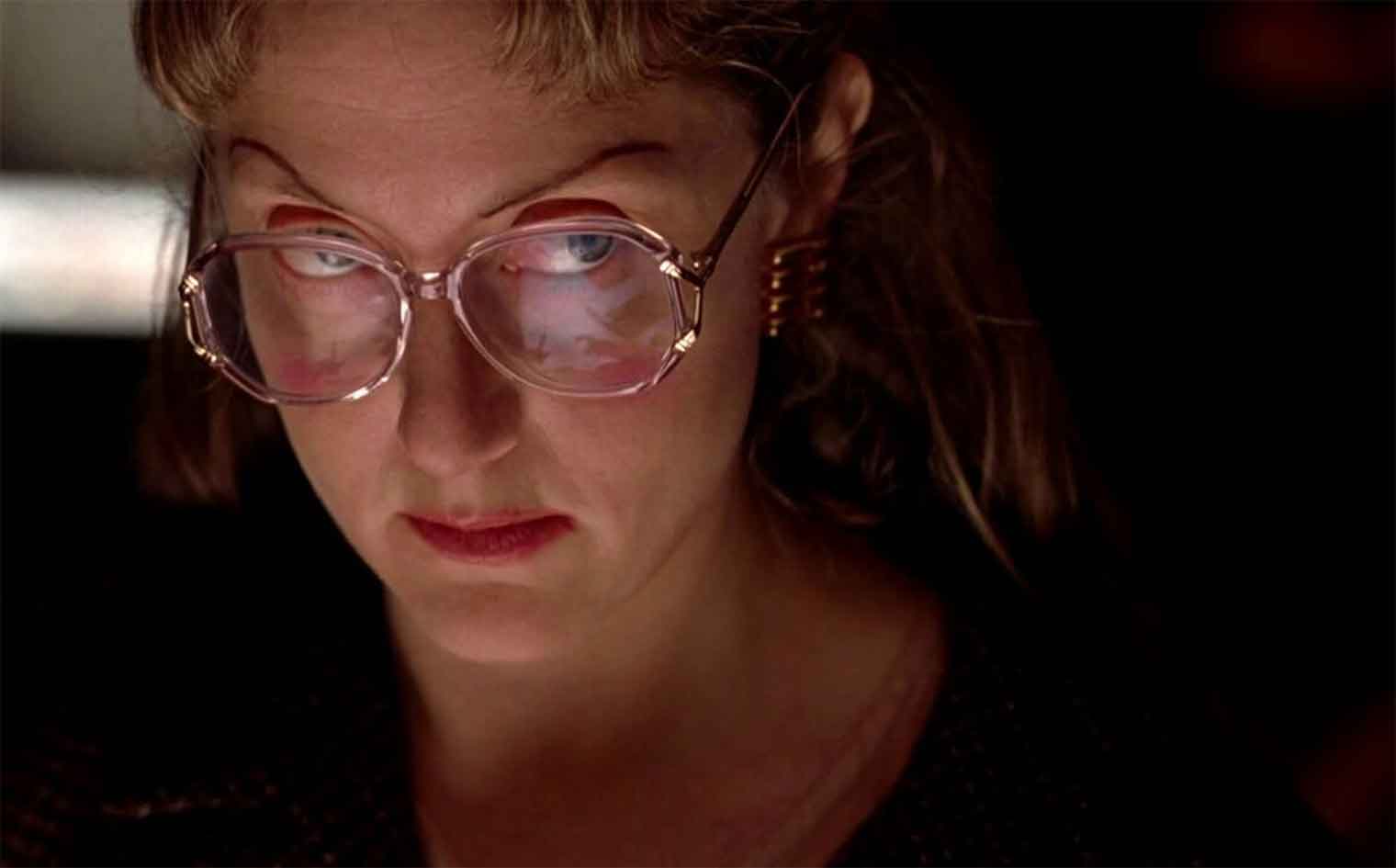
Cindy Sherman is well-known and much-celebrated for many things, but Office Killer is generally not among them.
Sherman’s iconic, relentlessly ambiguous photographs — in which she shoots herself in the “guise” of various characters in different settings, characters who may or may not be attributes of their author — always carried with them a touch of the cinematic, like a vast collection of still frames from unstable films that would never be made. And her later work turned increasingly toward the grotesque and unsettling, seemingly at home in the experimental and uncanny.
Not all of this can be gleaned from Office Killer, her only film. It was also one which she disavowed, referring to herself as a “hired gun” despite the fact
that the general idea for the story was hers, that she was involved in preproduction, that she gave specific instructions to the cinematographer and the actors about what she wanted, and that she played a direct role in the editing. She is officially credited in the film’s titles for the story idea and her role as director.
All of which is too bad, because Office Killer is a particular kind of bonkers. Playing like a camp 9 to 5 — in which the over-worked, under-appreciated women actually follow through on their murderous fantasies — Office Killer features a truly unhinged Carol Kane whose transition to a “work-from-home” position demands she recreate the office in her basement with the corpses of her co-workers. On one level, this is like John Waters directing Working Girl, but there are Sherman touches throughout (particularly the placement of their bloodied bodies in parodies of their workplace personae).
Office Killer is filled with little in-jokes and self-mockery (Evil Molly Ringwald should’ve really been a thing), and the film blends comedy, horror, and arthouse camp with a huge sense of goofy pleasure. Had it not bombed, maybe we would’ve been treated next Spooktober to more cinematic visions for Cindy Sherman to disavow. I guess we’ll just have to make do with her enormous and influential non-film canon instead.

